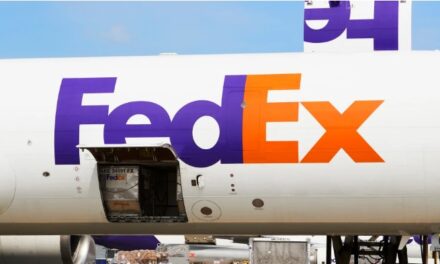
Shipping companies deliver good returns
Package shipping is big business. Global exchange, ecommerce and changes in supply chain management have all contributed to this boom. The number of packages delivered is absolutely, positively staggering.
United Parcel Service is the biggest and bluest of the bunch with a market capitalization of USD 78.7 billion, sales of USD 47.9 billion and a AAA credit rating. This company makes roughly 15 million deliveries every day with its more than 100,000 vehicles. It is the most profitable of its peer group with earnings that have averaged almost a 15 pct growth rate over the past three years and a return on equity of 26.6 pct.
Key to the success of UPS are the company's customer-friendly drivers. Although the company's drivers are unionized, and the last strike was a decade ago, the drivers are motivated by equity ownership in the firm. This is an important distinction, as only 19 pct of the company's revenue is generated from its international packages division. Also key, is UPS' non-duplication of networks with normal versus express deliveries as is the case with other firms.
Going forward UPS plans on spending about USD 1 billion per year on technology. Something its done the past twenty years. It also plans on extending its reach globally, most recently in the United Kingdom, Poland and China. In fact, the company has just completed a new air-hub in Shanghai scheduled to become operational next year.
FedEx is one of the world's largest express-delivery firms with a market capitalization of almost USD 35 billion, sales of just over USD 36 billion, 53,000 drop-off locations. It does business in more than 200 countries. FedEx's earnings have seen a growth rate of 28.6 pct over the past three years, accounting for a 15.2 pct return on equity in the last year.
International expansion is a key driver of FedEx's future plans as currently one-quarter of its revenue stems from high-margin international express deliveries. Just recently, the firm has purchased service providers in India, the U.K., Hungary. It also recently acquired full ownership of a Chinese priority partner. The firm has also demonstrated an ability to increase prices roughly 3 pct to 5 pct per year because shippers have few alternatives.
With a market capitalization of USD 9.7 billion, Expeditors International of Washington generates USD USD 4.7 billion of revenue by playing middleman with no assets. This firm buys cargo space in bulk and then resells it to its customers needing shipping space. The company also provides customs brokerage and other related logistics services. Although technically called "consolidation" or "expediting", EXPD also is involved in freight forwarding as circumstances dictate.
These services add value for shippers as EXPD's 23.7 pct average growth in earnings over the prior three year shows, as well as its current 22 pct return on equity. Expeditors is so efficient that other freight-forwarding firms use its services. The company uses a unique compensation structure that keeps its employees motivated to keep costs down.
Although EXPD uses a state-of-the-art IT system to carry out its operations, the firm derives 60 pct of its sales from retail and technology products. This makes the company vulnerable to any slump in those business segments. In addition, Expeditor's revenue and earnings have attracted attention and other firms. The company still plans on achieving future growth internally rather than by acquisition.
Results Delivered
The company’s respective stock performances must be frustrating for UPS. Over the past two years, UPS has appreciated about 10 pct while FedEx has risen roughly 40pct . The firm with no assets, EXPD, has gone up approximately 60 pct. While price-earnings ratios for UPS and FDX hover around 20, EXPD trades at around 42-times. Perhaps at some point the market will recognize and reward risk takers.












